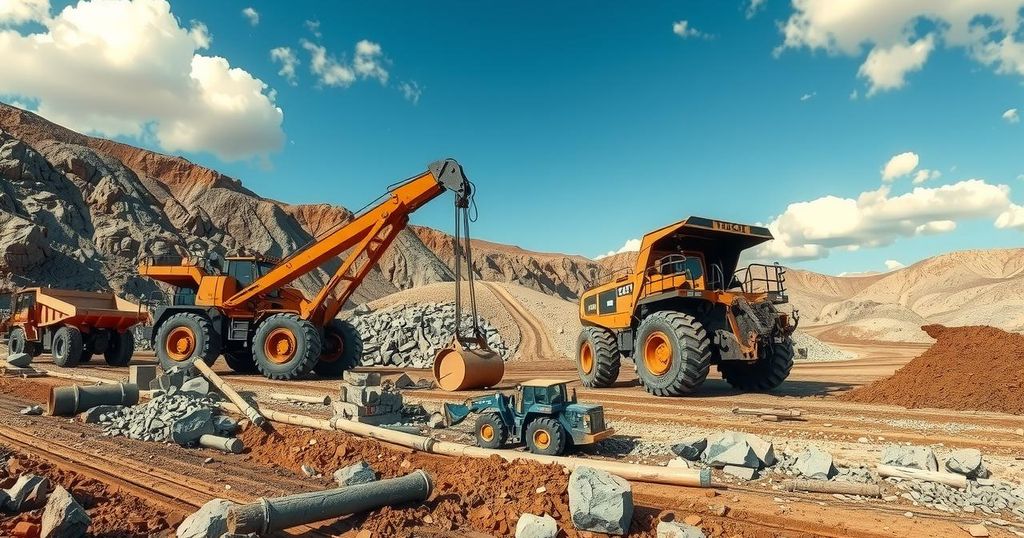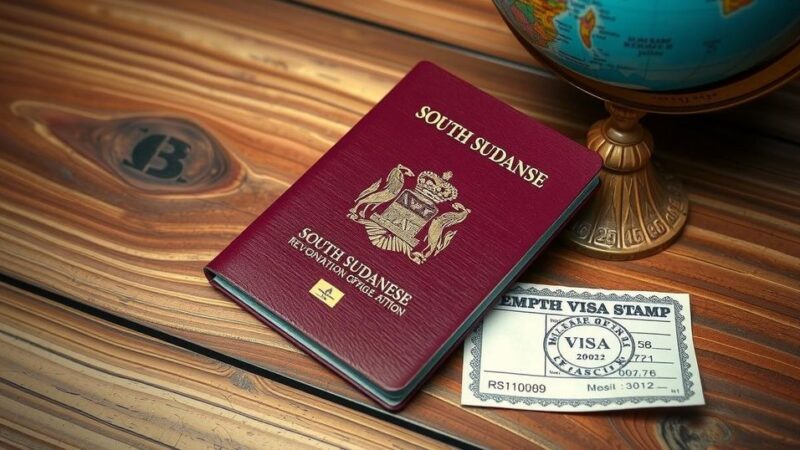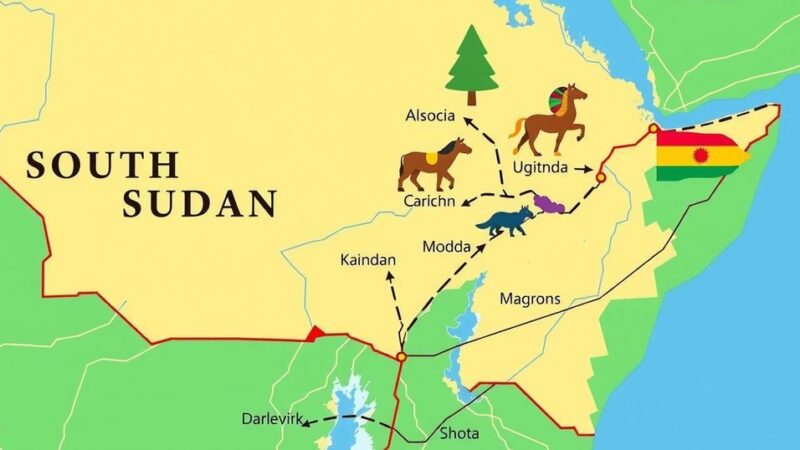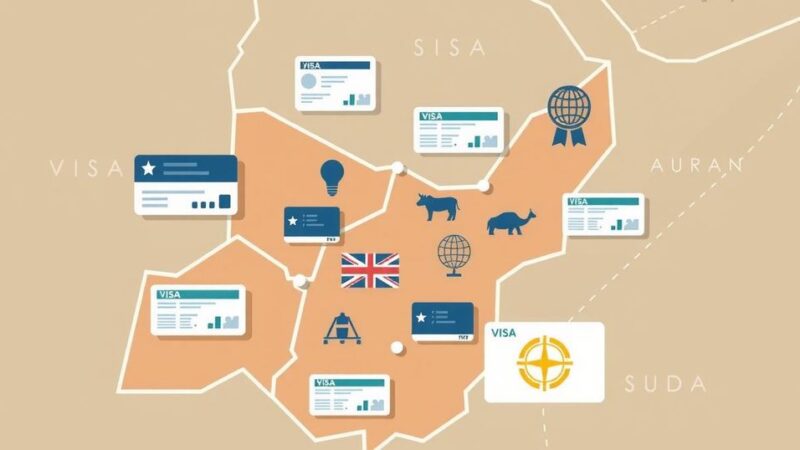The Democratic Republic of the Congo is exploring a mining deal with the Trump administration to secure U.S. support amid threats from M23 rebels and Rwandan forces. Preliminary discussions confirm interest in the DRC’s rich mineral resources, crucial for technology sectors. Concerns regarding transparency and the long-term benefits of such a deal have been raised, highlighting a complex landscape of international relations and governance.
The Democratic Republic of the Congo (DRC) is seeking to engage in formal negotiations with the Trump administration concerning the country’s abundant mineral resources. This endeavor aims to bolster U.S. support against the ongoing threat of the M23 rebels and Rwandan forces in eastern DRC. Currently, specifics of the proposed agreement remain unclear despite preliminary discussions that have been confirmed by Congolese officials.
The U.S. State Department has expressed openness to establishing a mining partnership with the DRC, acknowledging the ongoing discussions. The DRC is known for its significant reserves of cobalt, coltan, copper, and lithium, which are essential for advanced technologies in various sectors, including defense and energy.
Congolese authorities wish to prevent Rwandan interference, particularly due to Rwanda’s support for the M23 rebels, who have exacerbated instability since initiating a significant offensive in January. Congolese President Felix Tshisekedi has emphasized the need for international collaboration to enhance security in the region.
In an interview with The New York Times, President Tshisekedi proposed a stake in the DRC’s mineral wealth to Western nations, positing that it could help ensure stability. The proposal was well received by the Trump administration, which had previously shown interest in a strategic minerals deal.
A Congolese senator has also proposed a strategic partnership to U.S. Secretary of State Marco Rubio, suggesting the U.S. gain expedited access to Congolese mineral resources. The offer includes establishing operational control of a deep-water port to facilitate exports and sending U.S. military support to strengthen the Congolese armed forces against insurgent groups.
However, experts are skeptical about the feasibility of this proposal. Jason K. Sterns, a prominent expert on DRC, cautioned against expectations of American troops being deployed, as this would contradict President Trump’s previous commitments to reduce U.S. military presence abroad. Moreover, the Congolese military is reportedly in a weak position in eastern regions, relying heavily on international assistance.
Serious concerns regarding the negotiations’ transparency have been raised by civil society. Jean Pierre Okenda, a mining sector expert, noted that the urgency of the DRC’s security situation could overshadow the potential economic implications for the Congolese people. He stressed that any agreement should involve parliamentary approval to ensure it serves the nation’s interests.
Congolese officials assert that their intentions are focused on diversifying partnerships rather than trading minerals for military support. The Congolese presidency has emphasized the need for direct trade in minerals to eliminate foreign exploitation, specifically in light of Rwanda’s alleged resource predation.
Tina Salama from the Congolese presidency emphasized the initiative’s focus on U.S. involvement, particularly in light of recent sanctions imposed on Rwandan officials alleged to be linked to the M23 rebellion. Analysts perceive this as a significant shift in U.S. policy towards Rwanda, amid increasing calls for accountability regarding the conflict in the DRC.
The DRC’s appeal for Western partnerships signifies a shift away from heavy reliance on Chinese investments in the mining sector, where China currently dominates operations. However, while the DRC’s appeals may be viewed as strategic, experts point out operational challenges, as much of the desirable mining territory has already been committed to other private companies.
Despite these difficulties, there remains a genuine interest from some U.S. parties in the DRC’s mineral resources. However, historical skepticism regarding U.S. partnerships persists, with past negative experiences influencing current perceptions. Nonetheless, discussions between Congolese and U.S. officials are progressing, with hopes for fruitful negotiations centered on resources management and security cooperation.
The potential for a U.S.-DR Congo mining agreement reflects the complex interplay of mineral wealth, regional security dynamics, and international relations. As Congolese authorities seek to leverage their mineral resources to enhance national security against external threats, they simultaneously navigate the delicate balance of domestic governance and international partnerships. Clarity and transparency in the negotiations will be paramount to ensure that any agreements genuinely benefit the Congolese population rather than solely serving governmental interests.
Original Source: www.france24.com






